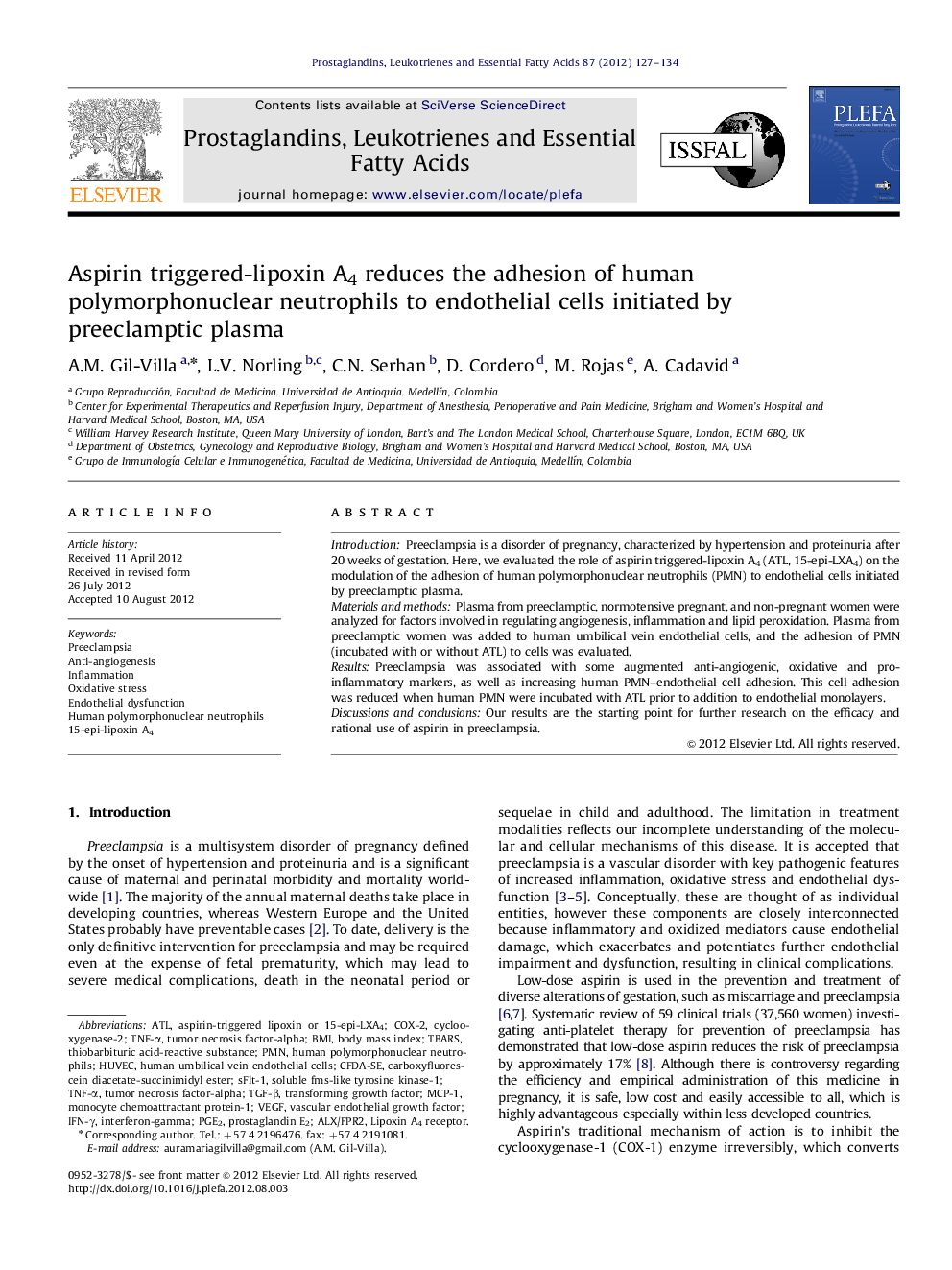| Article ID | Journal | Published Year | Pages | File Type |
|---|---|---|---|---|
| 2777733 | Prostaglandins, Leukotrienes and Essential Fatty Acids (PLEFA) | 2012 | 8 Pages |
IntroductionPreeclampsia is a disorder of pregnancy, characterized by hypertension and proteinuria after 20 weeks of gestation. Here, we evaluated the role of aspirin triggered-lipoxin A4 (ATL, 15-epi-LXA4) on the modulation of the adhesion of human polymorphonuclear neutrophils (PMN) to endothelial cells initiated by preeclamptic plasma.Materials and methodsPlasma from preeclamptic, normotensive pregnant, and non-pregnant women were analyzed for factors involved in regulating angiogenesis, inflammation and lipid peroxidation. Plasma from preeclamptic women was added to human umbilical vein endothelial cells, and the adhesion of PMN (incubated with or without ATL) to cells was evaluated.ResultsPreeclampsia was associated with some augmented anti-angiogenic, oxidative and pro-inflammatory markers, as well as increasing human PMN–endothelial cell adhesion. This cell adhesion was reduced when human PMN were incubated with ATL prior to addition to endothelial monolayers.Discussions and conclusionsOur results are the starting point for further research on the efficacy and rational use of aspirin in preeclampsia.
